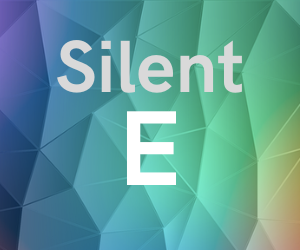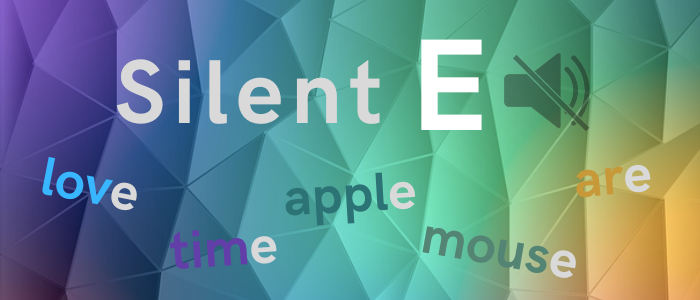- Hat /hæt/ has a short A sound, and Hate /heɪt/ has a long A sound.
- Them /ðɛm/ has a short E sound, and Theme /θim/ has a long E sound.
- Tim /tɪm/ has a short I sound, and Time /taɪm/ has a long I sound.
- Hop /hɑp/ has a short O sound, and Hope /hoʊp/ has a long O sound.
- Cut /kʌt/ has a short U sound, and Cute /kiut/ has a long U sound.
For example:
| Soft C /s/
| Soft G /ʤ/
|
In most words that end in TH, it is pronounce as /θ/, an unvoiced consonant sound, for example bath, month, birth, teeth, etc. When a final TH is followed by E, however, it almost takes the voiced consonant sound /ð/.
- bathe /beɪð/.
- breathe /brið/.
For example:
|
|
- by /baɪ/ - bye /baɪ/.
- adjective /ˈæʤɪktɪv/.
- argue /ˈɑrgju/.
- blue /blu/.
- drive /draɪv/.
- give /gɪv/.
- have /hæv/.
- love /lʌv/.
- rescue /ˈrɛskju/.
- wave /weɪv/.
Note that words borrowed from other language such as bureau, chateau, jujitsu, menu, tiramisu and tofu and abbreviations such as flu (influenza) and gov (government) can end in a u or v.
- base /beɪs/.
- course /kɔrs/.
- cheese /ˈprɑməs/.
- house /haʊz/.
- goose /gus/.
- mouse /maʊz/.
- promise /ˈprɑməs/.
- verse /vɜrs/.
- are /ɑr/.
- come /kʌm/.
- discipline /ˈdɪsəplən/.
- done /dʌn/.
- gone /gɔn/.
- none /nʌn/.
- one /wʌn/.
- some /sʌm/.
- sure /ʃʊr/.
- there /ðɛr/.
- where /wɛr/.
- whose /huz/.
For example:
- acne /ˈækni/.
- apostrophe /əˈpɑstrəfi/.
- fiance /fiˈɑnˌseɪ/.
- karate /kəˈrɑti/.
- recipe /ˈrɛsəpi/.
- resume /rɪˈzum/.


